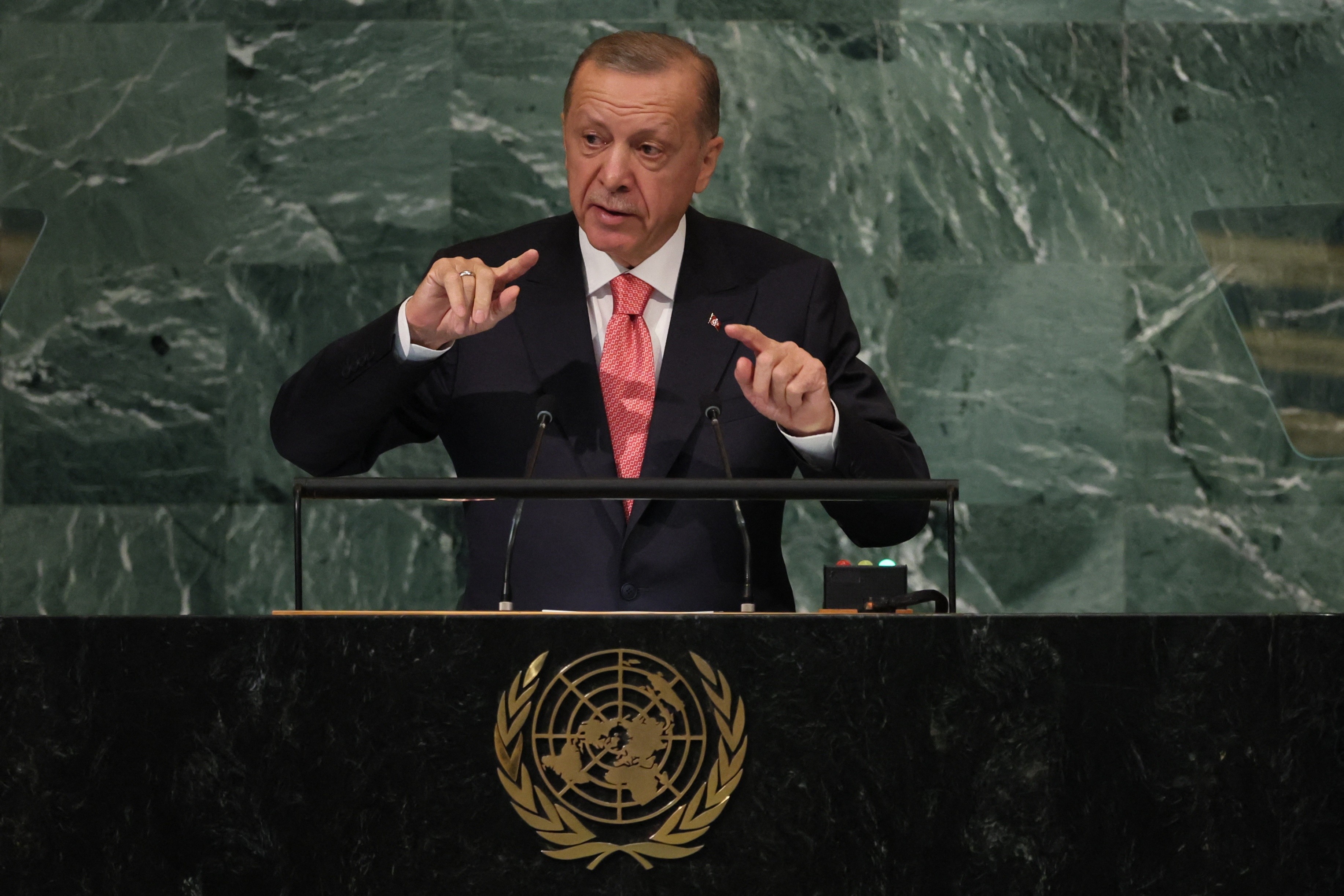Turkish President Recep Tayyip Erdogan has reiterated his government’s determination to tame inflation, which he says will fall to “reasonable” levels from February next year.
Annual inflation in Turkey reached 80% in August, a new 24-year high, mainly due to a sharp rise in food and energy prices, which jumped even more after Russia’s invasion of Ukraine, Daily Sabah reported.
However, the increase was smaller than in previous months, signaling that price pressures may be slowing.
“We will reduce inflation to reasonable levels in February, and then we are determined to bring it down to single digits,” Erdogan told an event attended by businessmen in Istanbul.
“We have done this in the past as well. We had reduced interest rates to 4.6% and inflation to 6.2%.”
The government says inflation will ease as its economic program, which prioritizes low-interest rates to boost exports, manufacturing, and investment, aims to reduce consumer price increases by reversing Turkey’s chronic current account deficit in excess.
“The aim of the Turkish economic model is to develop our country through investment, employment, and a current account surplus. Those who criticize us for this economic model have arrived at the same policy as us,” Erdogan said.
Erdogan is known for opposing higher borrowing costs, which he says only make “the rich richer and the poor poorer”. He often calls high-interest rates “the mother of all evils.”
Higher interest rates make borrowing more expensive for households and businesses. However, the government seeks to stimulate production, exports and employment with a policy of low-interest rates.
The government expects inflation to fall to 65% by the end of the year and to 24.9% by the end of 2023.

